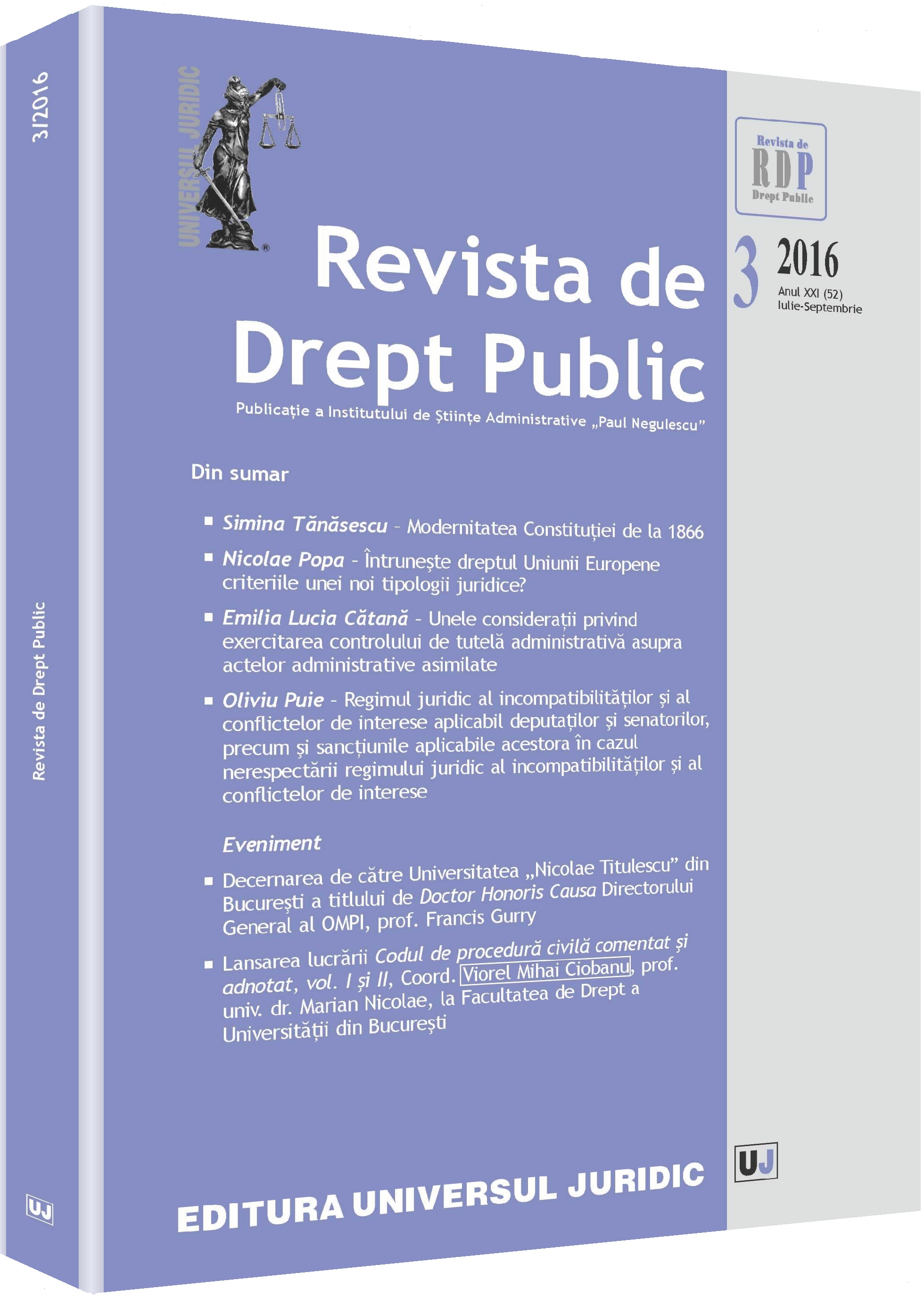Unele aspecte specifice privind răspunderea penală a funcţionarilor publici
Certain specific issues regarding the criminal liability of civil servants
Author(s): Luciana Bezeriţă (Tomescu)Subject(s): Law, Constitution, Jurisprudence, Civil Law
Published by: Universul Juridic
Keywords: public health system; civil servant; liability; Constitution; Criminal Code provisions; legislative; executive or judicial power;
Summary/Abstract: The relevant literature and case law have consistently shown that the concept of “civil servant” has a broader meaning for the purposes of criminal law than the same concept of administrative law, both because of the social relations defended and exigencies of defence of patrimony and promotion of community interests. In administrative law, namely within the meaning of the Law on Civil Service Regulations, the concept of <civil servant> means the person appointed under the law in a civil service. Regarding civil servant’s responsibility for crimes committed on duty or in connection with the duties of the civil service they hold, it is engaged according to criminal law. In criminal law, namely within the meaning of the provisions of the Criminal Code, the concept of <civil servant> means the person who exercises responsibilities in order to achieve the prerogatives of the legislative, executive or judicial power, or performs a public dignity service or public service of any kind, or exercises attributions related to achievement of object of activity of an autonomous administration, of another economic operator or of a legal entity owned entirely or in majority by state; and the person exercising a public service for which he/she was vested by public authorities or who is subject to their control or supervision on the performance of their respective public service. Distinctive aspects outlined in legal doctrine and enshrined in specific legislation and legal reasons which were the basis for them have generated questions and some controversy on the actual scope of the Criminal Code provisions that define the notion of <civil servant>. In its case law, the Constitutional Court showed that the President of Romania, deputies and senators cannot be exempt from the scope of incidence of the term “civil servant” as defined by the new Criminal Code, as persons occupying such positions shall exercise powers established under the Constitution and the law, in order to achieve the prerogatives they are vested with at the highest level in the Romanian state (Decision no. 2/2014). Regarding the inclusion or exclusion of persons exercising liberal professions from the scope of the criminal provision, the Constitutional Court considered that factors such as the nature of the service provided, the legal basis under which that activity is performed or the legal relationship between the person concerned and the public authorities, public institutions, institutions or other legal persons of public interest are determinant. Thus, some of the persons exercising liberal professions are considered “civil servants” under the new Criminal Code, when, while operating under a special law and are not financed by the state budget, exercise a service of public interest and is subject to control or supervision by a public authority. So, as an example, lawyers, notaries public, mediators, doctors, pharmacists, architects, independent experts or insolvency practitioners could fall into this category. However, the High Court of Cassation and Justice, in its case law, showed that the fulfilment of conditions set out in the Criminal Code are analysed for each professional category in particular, from the special legal norms governing its statute and the doctor hired under employment contract in a hospital unit in the public health system is a public servant in the sense of Criminal Code provisions (Decision no. 26/2014).
Journal: Revista de Drept Public
- Issue Year: 2016
- Issue No: 03
- Page Range: 87-95
- Page Count: 9
- Language: Romanian
- Content File-PDF

